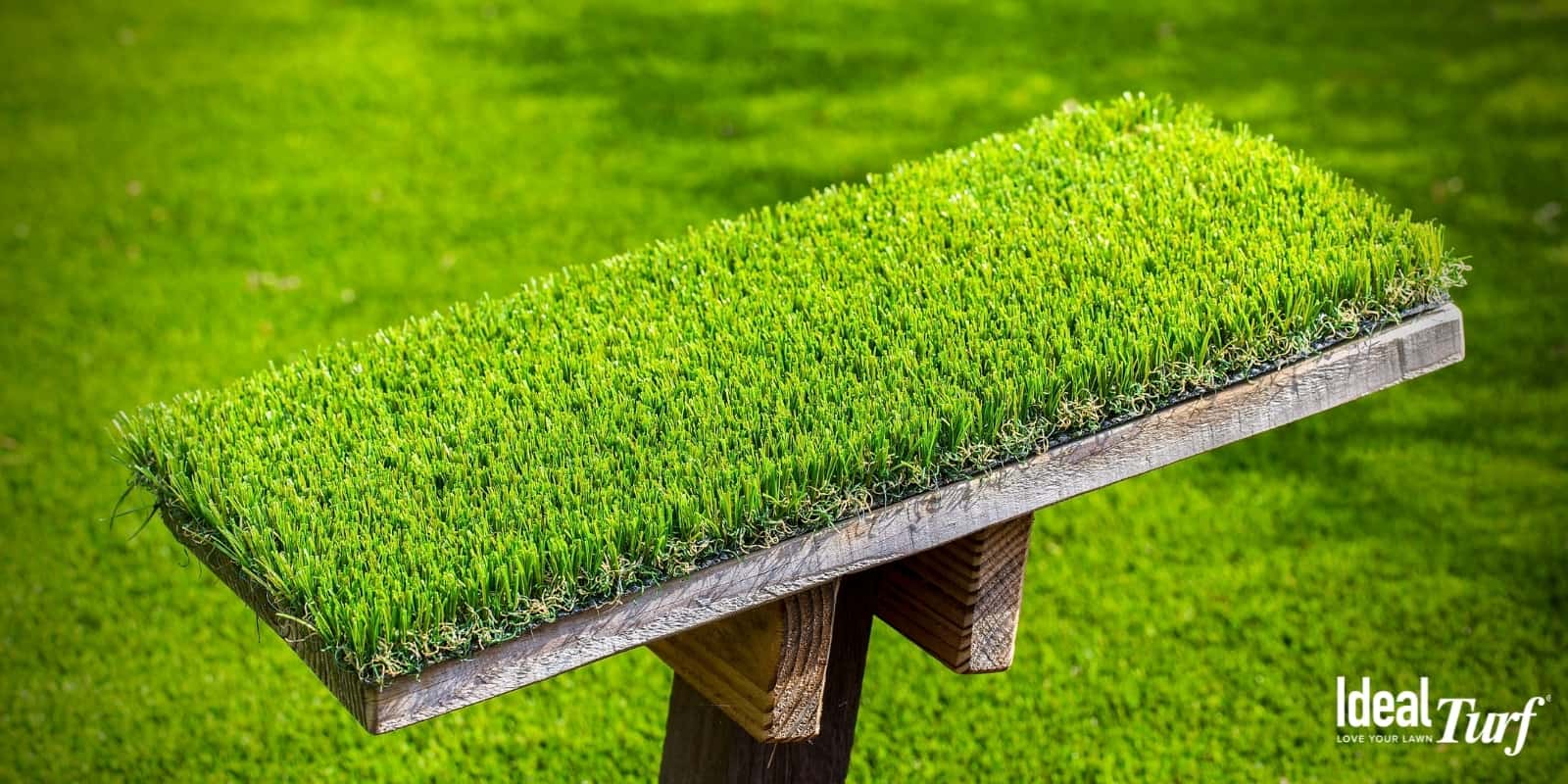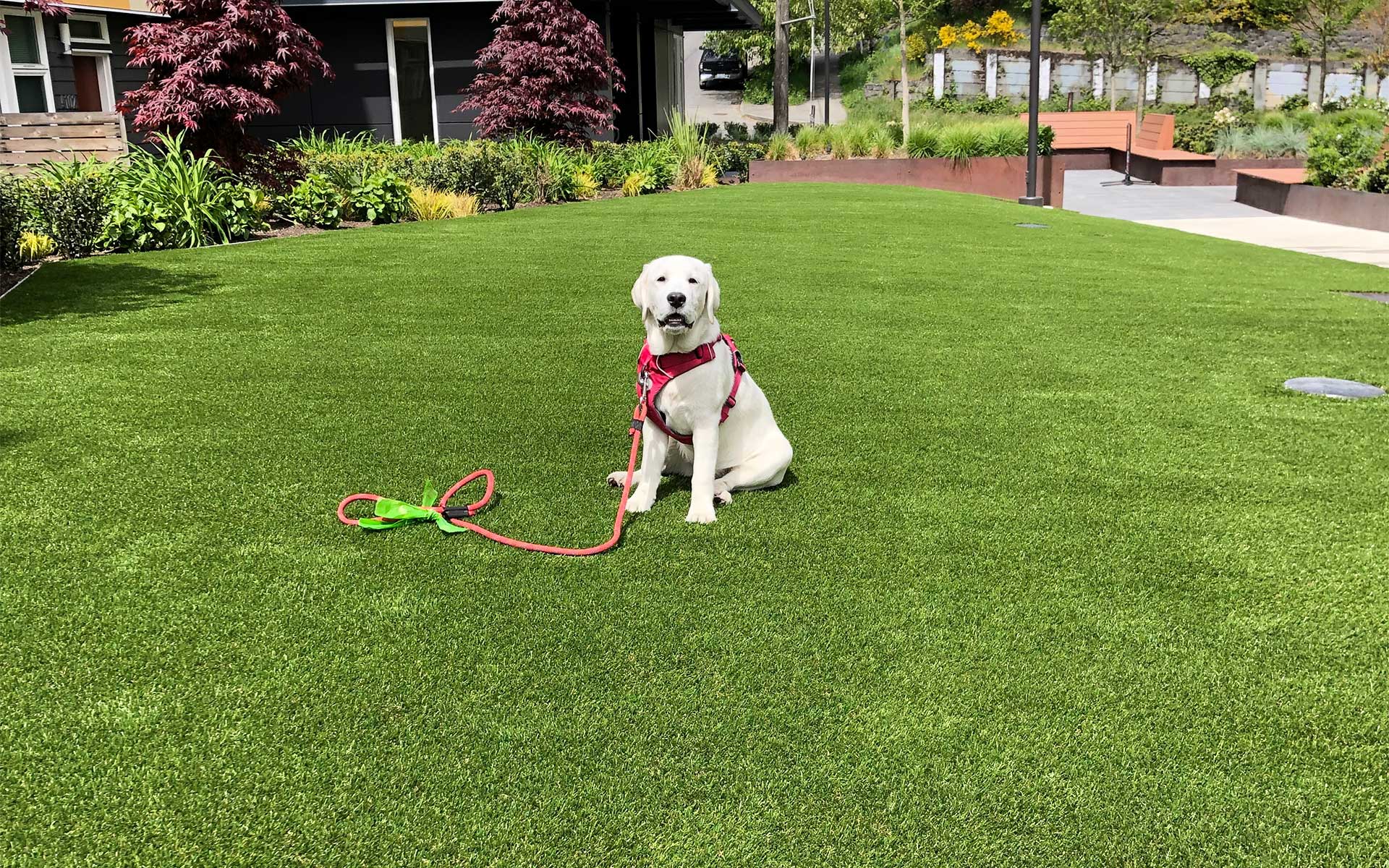Explore the Environmental Perks of Opting for Artificial Grass Solutions
The fostering of fabricated grass options offers a compelling chance to address pushing environmental difficulties. By dramatically reducing water use and decreasing the application of unsafe chemicals, these alternatives not only promote lasting landscape design however also shield local communities.
Water Conservation Benefits
One of the most considerable benefits of fabricated grass is its capability to save water. In contrast, man-made lawn does not require watering, considerably minimizing the total need for water resources.
By removing the need for routine watering, synthetic grass adds to sustainable landscape techniques and helps reduce the environmental influence of extreme water usage. The conservation of water prolongs to the reduction of overflow, which can lead to dirt erosion and river air pollution.
Additionally, the setup of synthetic grass permits property owners and districts to assign water sources a lot more efficiently, concentrating on vital uses such as drinking water and agriculture. The change towards artificial turf not just promotes accountable water usage however also lines up with more comprehensive ecological objectives targeted at maintaining natural deposits.
As neighborhoods significantly focus on sustainability, the water preservation advantages of fabricated turf present an engaging instance for its fostering in business and residential landscape design jobs.
Lowered Chemical Use
The transition to fabricated lawn dramatically lowers the dependence on chemical treatments generally used in all-natural grass upkeep. Conventional turf administration commonly includes the application of pesticides, herbicides, and plant foods to advertise growth and control pests. These chemicals can present threats to human wellness, local wild animals, and the atmosphere, adding to dirt and water contamination.
In comparison, artificial lawn removes the requirement for these unsafe compounds. By minimizing the release of synthetic substances right into the ecosystem, fabricated turf advertises much healthier soil and water systems.
Moreover, the lack of chemical runoff connected with synthetic turf installments helps secure local waterways from pollution, sustaining marine life and keeping biodiversity. Artificial turf companies phoenix. As communities significantly prioritize sustainable practices, going with synthetic grass offers a sensible solution that straightens with ecological preservation goals. Through this shift, homeowner can delight in lavish environment-friendly areas without jeopardizing environmental wellness, leading the method for a more sustainable future
Reduced Carbon Footprint

Moreover, the installment of synthetic grass can result in considerable water conservation. Natural yards need considerable amounts of water for irrigation, which not only contributes to the carbon impact related to water removal and therapy but likewise pressures regional water resources. In contrast, synthetic grass needs marginal upkeep, calling for no watering, therefore considerably reducing water use and its connected power prices.
In addition, the durability of synthetic grass adds to its decreased carbon effect. With a lifespan of approximately 15 years or even more, the requirement for frequent substitutes is this contact form reduced, causing much less waste and reduced energy intake in manufacturing and getting rid of standard turf alternatives. Generally, synthetic grass offers a lasting option for eco conscious landscaping.
Environment Conservation
Habitat conservation is a vital consideration in the debate over landscape design selections, particularly when contrasting synthetic Source grass to all-natural yard. All-natural lawn lawns commonly require considerable maintenance, including making use of herbicides, pesticides, and fertilizers, which can detrimentally influence regional environments. These chemicals can leach right into the soil and waterways, harming native flora and fauna and interfering with neighborhood habitats.
Fabricated lawn eliminates the demand for hazardous chemicals, thereby safeguarding nearby wild animals and preserving the honesty of surrounding communities. The setup of artificial grass can lead to the conversion of former lawn areas right into even more biodiverse landscapes, such as pollinator gardens or native plant areas, which can support regional wildlife.
Ultimately, the shift to synthetic turf not only saves water and lowers maintenance efforts but also promotes a more harmonious connection in between human activities and the native environment, advertising habitat conservation in the process.
Long-Term Sustainability
Lasting sustainability is a critical factor in assessing the benefits of synthetic grass over standard grass lawns. Among one of the most considerable advantages of artificial grass is its toughness; it can last as much as 15-20 years with minimal maintenance, whereas all-natural grass needs frequent reseeding and substitute. This long life decreases the requirement for constant sources, such as water, fertilizers, and pesticides, which are vital for keeping a healthy and balanced turf yard.
Additionally, synthetic grass adds to a reduction in carbon emissions related to grass care equipment. Standard yards frequently need gas-powered lawn mowers, trimmers, and blowers, all of which contribute to air pollution. Phoenix turf companies. On the other hand, synthetic grass eliminates the demand for such tools, promoting a cleaner setting
In addition, the manufacturing of fabricated turf progressively uses recycled products, enhancing its sustainability profile. As manufacturers take on environment-friendly methods, the environmental impact of synthetic grass proceeds to reduce.

Verdict
The adoption of synthetic grass solutions provides considerable environmental benefits, including considerable water conservation, minimized reliance on harmful chemicals, and a reduced carbon impact. Fabricated turf help in preserving natural environments by decreasing land disturbance and promoting long-lasting sustainability with the usage of long lasting products. Collectively, these elements underscore the possibility of man-made turf to contribute favorably to ecological health and wellness and supply a practical option to go right here traditional landscaping techniques in a significantly resource-conscious world.
In contrast, artificial grass does not need watering, considerably minimizing the overall demand for water resources. By decreasing the launch of synthetic compounds into the ecological community, synthetic lawn advertises healthier soil and water systems.
In addition, the installment of fabricated lawn can result in substantial water preservation. In comparison, man-made lawn requires very little upkeep, needing no watering, thus significantly decreasing water usage and its linked power expenses.
